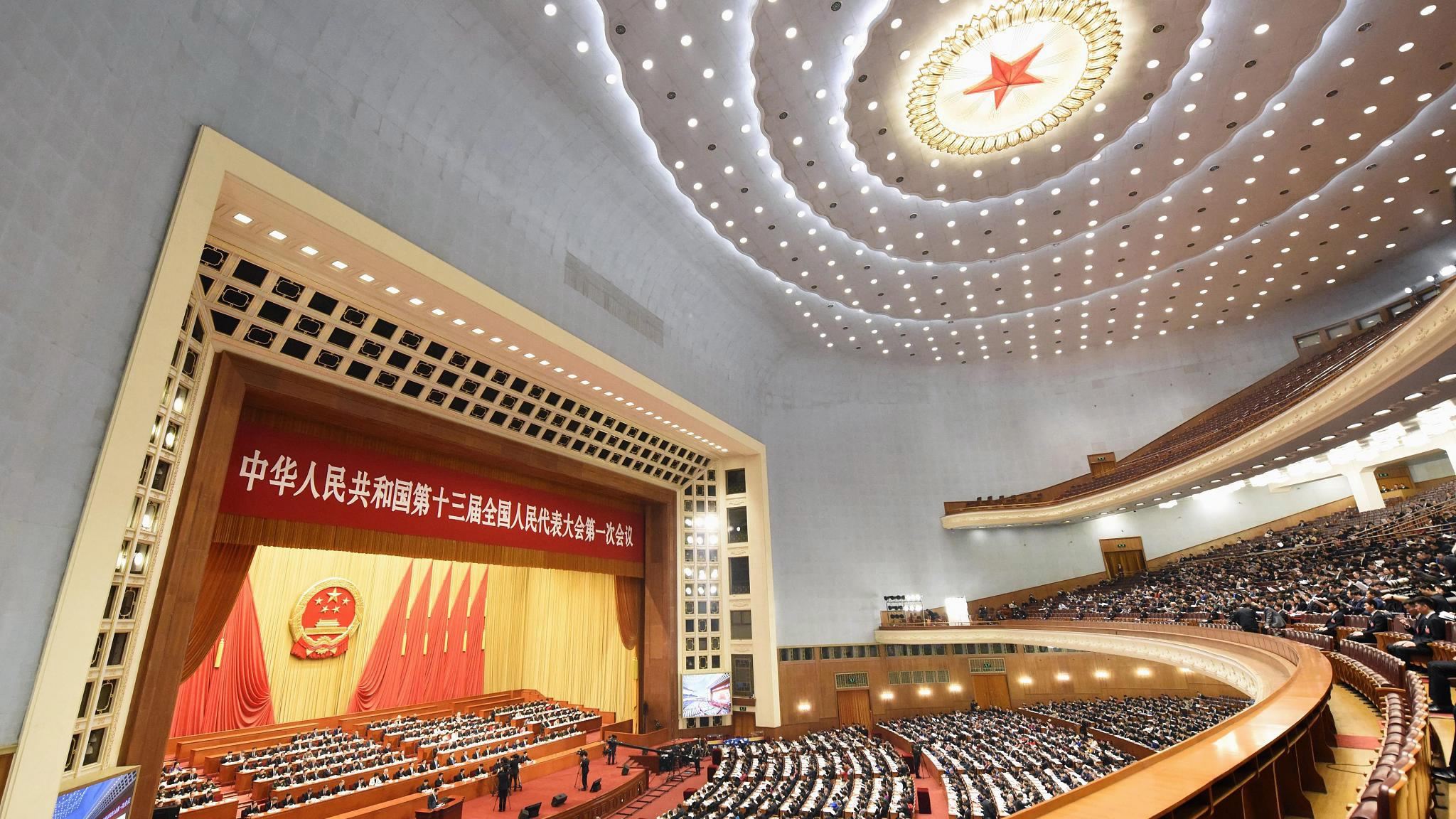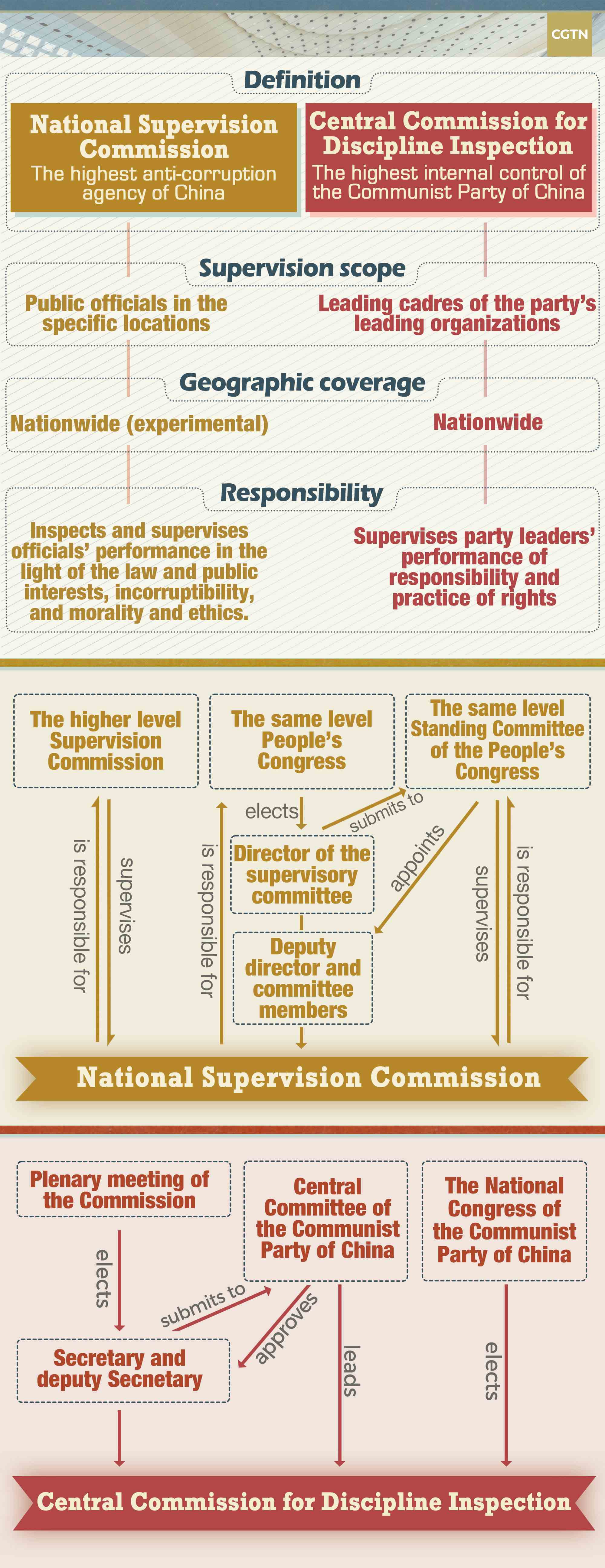A draft law that would establish a new supervisory network across China came under the microscope at the National People’s Congress (NPC) on Tuesday.
The proposed law, which would create a National Supervisory Commission, is part of significant institutional reform under deliberation at the first session of the 13th NPC.
Also on Tuesday, the State Council submitted a draft plan that would result in a broad restructuring of the government.
What is the supervision law?
The proposed law would create national, provincial, city and county supervisory commissions, merge existing bodies and pool resources to create a centralized system.
The reform would unify the Communist Party of China (CPC) and state supervisory systems, and is designed to serve as a guiding law against corruption and for state supervision.
"The reform of China's supervisory system is aimed at enhancing the Party's unified leadership over anti-corruption campaigns and covering all state functionaries," Zhang Yesui, spokesperson for the first session of the 13th NPC, said at a press conference on March 4.
The bill would create new supervisory commissions to handle job-related crimes, independently exercising supervisory power, and not subject to interference from the government, social organizations and individuals, Xinhua reported.
The commissions would be entrusted to oversee state functionaries, investigate corruption cases such as bribery, embezzlement and abuse of power, impose administrative penalties on corrupt officials, and hand criminal cases over to prosecutors.
Key points
- Guiding law against corruption and for state supervision.
- Enhance Party leadership over corruption campaigns.
- Supervisory commissions at national, provincial, city and county levels.
- Legalize unified system between state supervision and Party disciplinary inspection.
- New commissions to share resources with Party disciplinary inspection agencies.
How did the pilot reforms work?
Pilot reforms of the supervisory system began in Beijing, Shanxi and Zhejiang in December 2016 and were expanded nationwide in November 2017.
The new supervisory commissions shared offices and staff with Party disciplinary inspectors, and incorporated existing supervisory, corruption prevention and control agencies within governments and procuratorates.
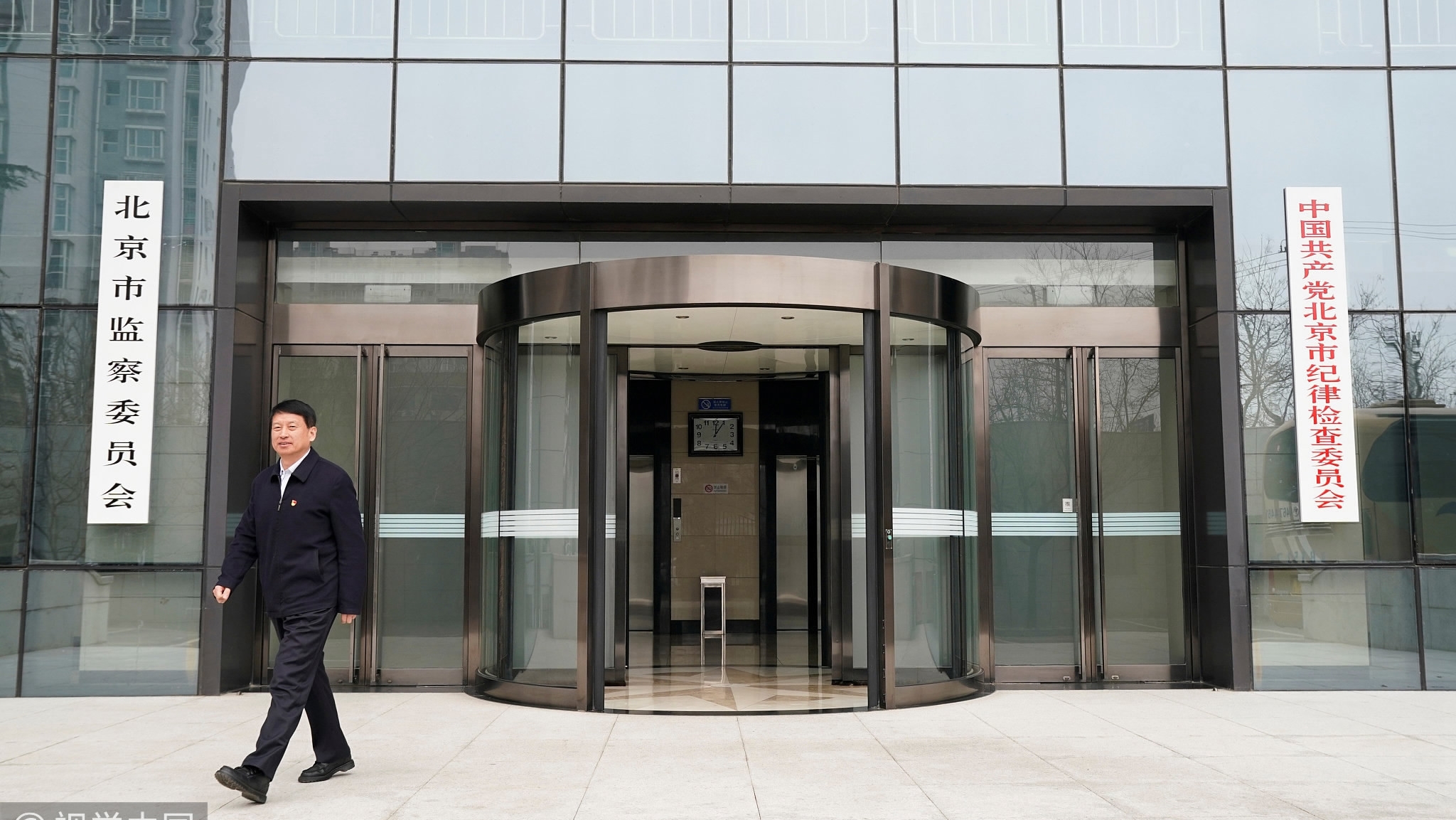
Signs of Beijing Municipal Supervision Commission (L) and Beijing Municipal Discipline Inspection Commission of the Communist Party of China are pictured in Beijing, China, February 27, 2018. /VCG Photo
Signs of Beijing Municipal Supervision Commission (L) and Beijing Municipal Discipline Inspection Commission of the Communist Party of China are pictured in Beijing, China, February 27, 2018. /VCG Photo
The first significant change after the establishment of supervisory commissions was an increase in the number of state functionaries under supervision, according to Xinhua.
In Beijing, the total number of officials under supervision increased from 210,000 before the reform to 997,000 as of December 2017, Zhang Shuofu, head of the city's supervisory commission, told Xinhua.
What’s the deliberation process?
Tracking the progress of a law in any country is a complicated task – discussion, redrafts and votes are common practice. Preparing the groundwork for China’s proposed supervision law has required additional procedure, including changes to the Constitution.
The foundations for the implementation of the proposed law were laid by the NPC on Sunday, when deputies voted to include supervisory commissions as a state organ in the Constitution. Eleven of the 21 amendments backed by the NPC on Sunday related to supervisory commissions.
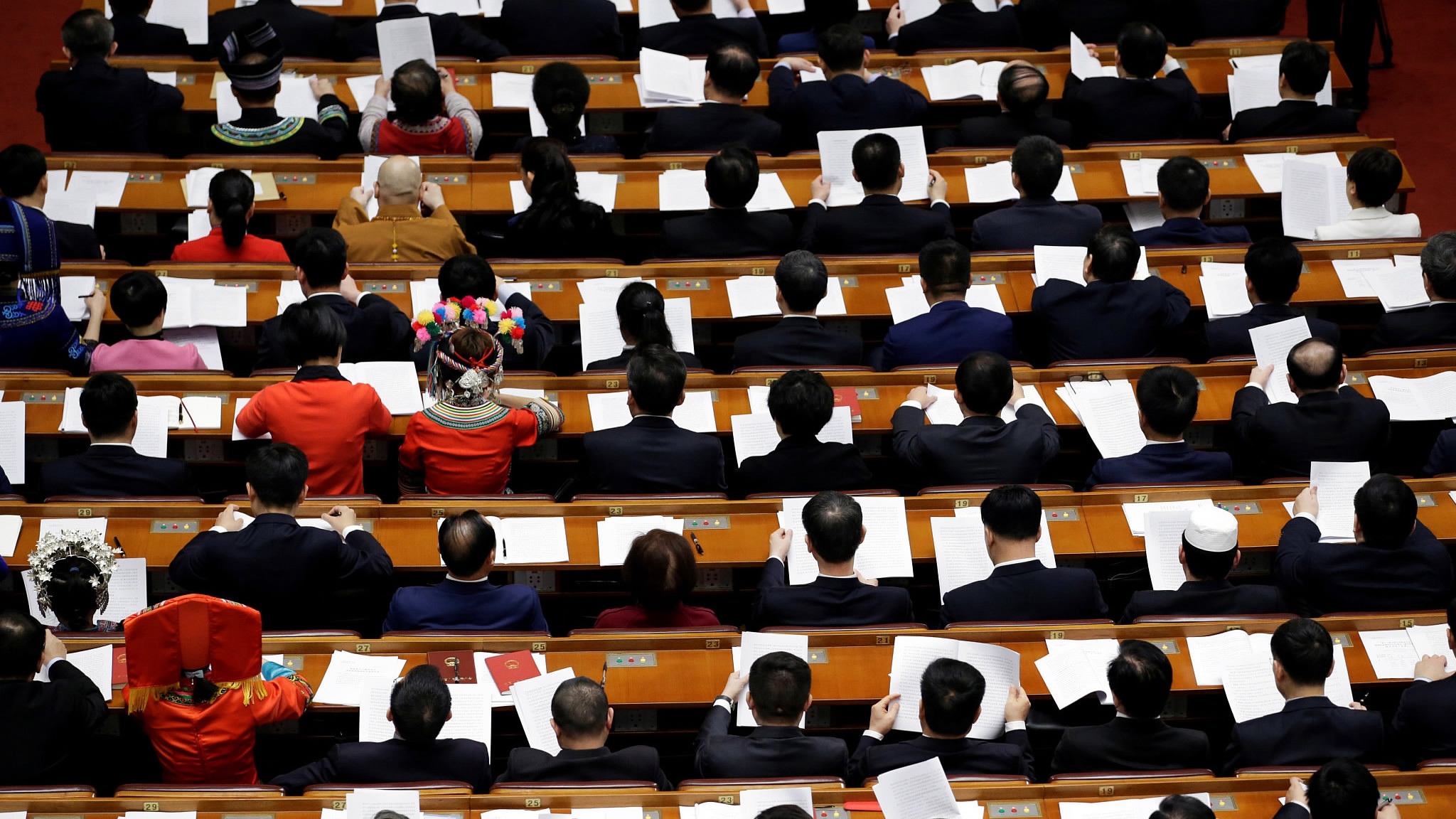
Delegates attend the fourth plenary session of the National People's Congress at the Great Hall of the People in Beijing, China, March 13, 2018. /VCG Photo
Delegates attend the fourth plenary session of the National People's Congress at the Great Hall of the People in Beijing, China, March 13, 2018. /VCG Photo
A further step was announced on Tuesday, when an institutional restructuring plan was put forward by the State Council. The Ministry of Supervision and National Bureau of Corruption Prevention would be merged into a National Supervisory Commission, under the draft plan on which a vote is scheduled on Saturday.
The final stages of the establishment of the new system will take place over the coming days at the first session of the 13th NPC, culminating in a vote scheduled for March 20.
NPC steps
March 13 (a.m.): Draft law presented at NPC.
March 13 (p.m.): Delegations deliberate on draft law.
March 14: Small group deliberations on draft law.
Law revised based on the recommendations.
March 16: Delegations deliberate revised draft.
March 19: Delegations deliberate voting version of revised draft.
March 20: NPC votes on final draft.
Why is the new law being proposed?
The new supervision law is designed to cut inefficiency and enhance the CPC’s leadership over supervision.
Under the old system, the Party disciplinary network oversaw all CPC members while administrative supervisory agencies governed civil servants.
"In the face of a tough and complicated situation, our existing supervisory institutions were clearly unable to meet the demands of the battle against corruption and the campaign to clean up the Party," Xinhua quoted Li Jianguo, vice chairman of the Standing Committee of the 12th NPC, as saying on Tuesday.
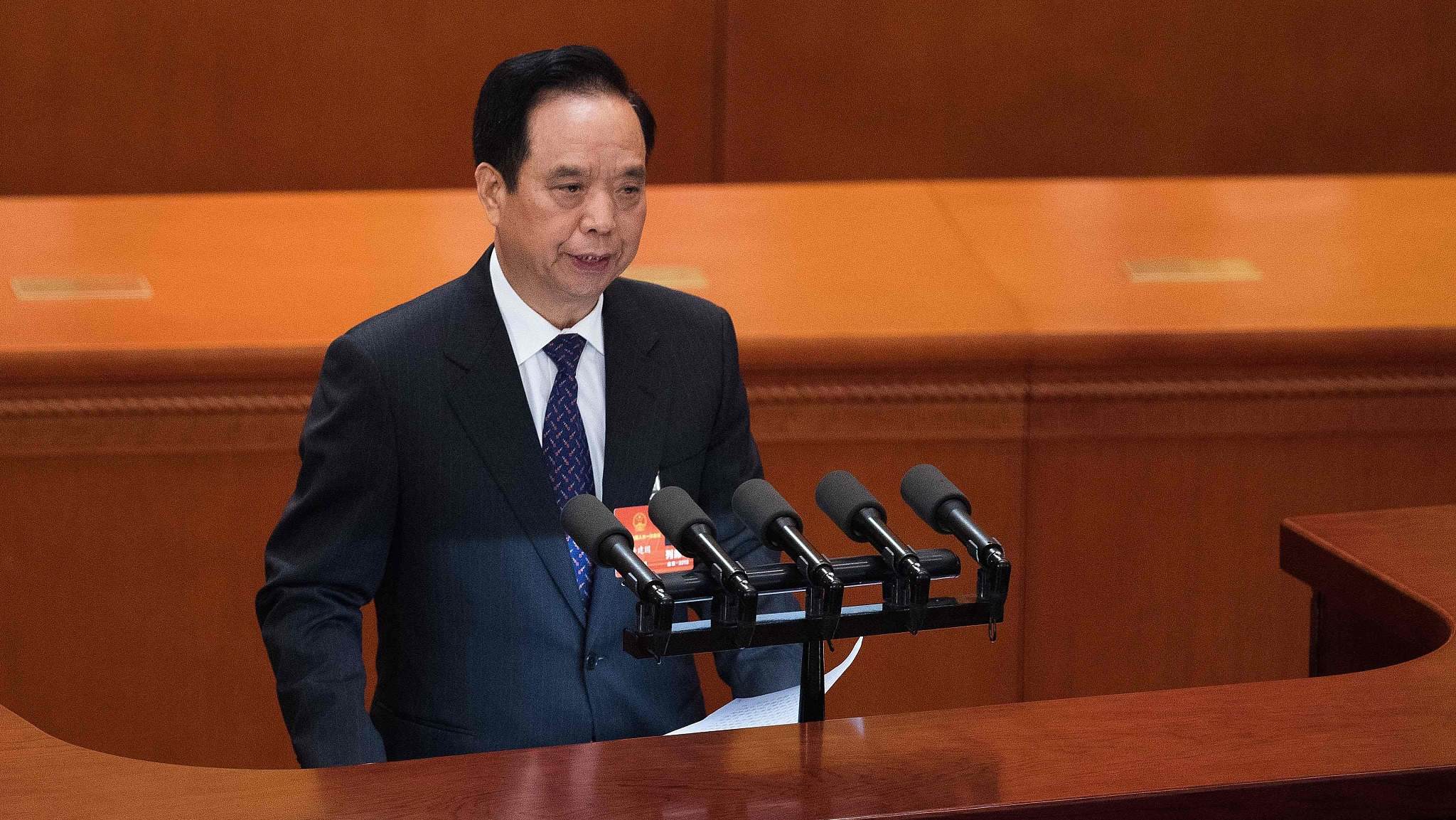
Li Jianguo, vice chairman of the Standing Committee of the 12th National People's Congress, speaks during the the fourth plenary session of the NPC at the Great Hall of the People in Beijing on March 13, 2018. /VCG Photo
Li Jianguo, vice chairman of the Standing Committee of the 12th National People's Congress, speaks during the the fourth plenary session of the NPC at the Great Hall of the People in Beijing on March 13, 2018. /VCG Photo
Since 80 percent of civil servants and 95 percent of leading officials are Party members, the tasks of CPC inspection and state supervision highly overlap, Li added
The supervisory power was also divided among three agencies, with the Party disciplinary agencies regulating Party members according to Party rules, administrative supervisory agencies watching civil servants according to the administrative supervision law, and procuratorates prosecuting state functionaries suspected of corruption according to the criminal procedure law.
"The agencies, with their power divided and overlapping, did not function in harmony," Li said, adding that procuratorates, which not only investigate but also prosecute, were not under effective supervision.
Under the reform, supervision, corruption control and prevention divisions under the government and procuratorates would be merged, pooling anti-graft resources.
(With input from Xinhua)

